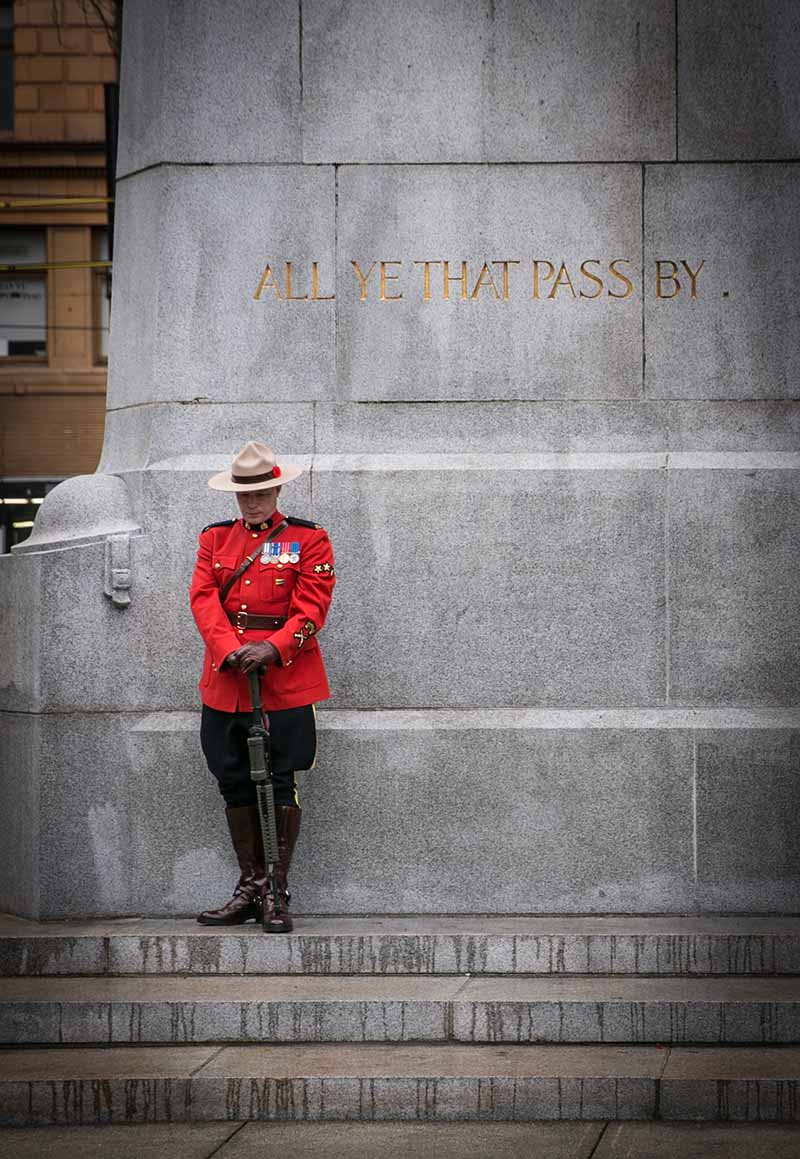 Dysfunction is on Canada’s horizon according to a 2023 secret report prepared by the Royal Canadian Mounted Police’s (RCMP) Strategic Foresight and Methodology Team. The report, titled “Whole-of-Government Five-Year Trends for Canada”, analyzed domestic and international affairs, topics including the “Effects of Climate Devastation”, “Popular Resentment”, “Erosion of Trust”, “Paranoid Populism”, “Big Data”, “Artificial Intelligence”, “Quantum Computing”, and “Blockchain”. Although the RCMP’s report was meant to be a forecasting exercise, based on a review of open-source articles and reports, and to provide leadership with insight on Canada’s political, economic, social, technological, environmental and legal environments, and how to best safeguard Canada, it has some national security experts wanting to know more.
Dysfunction is on Canada’s horizon according to a 2023 secret report prepared by the Royal Canadian Mounted Police’s (RCMP) Strategic Foresight and Methodology Team. The report, titled “Whole-of-Government Five-Year Trends for Canada”, analyzed domestic and international affairs, topics including the “Effects of Climate Devastation”, “Popular Resentment”, “Erosion of Trust”, “Paranoid Populism”, “Big Data”, “Artificial Intelligence”, “Quantum Computing”, and “Blockchain”. Although the RCMP’s report was meant to be a forecasting exercise, based on a review of open-source articles and reports, and to provide leadership with insight on Canada’s political, economic, social, technological, environmental and legal environments, and how to best safeguard Canada, it has some national security experts wanting to know more.
The secret report was obtained by Matt Malone, an Assistant Law Professor and Government Secrecy Researcher at Thompson Rivers University, through an access to information request. Although the nine-page report is based on open-source information, most of the report is redacted. However, it is the explanation cited by the RCMP that might raise eyebrows. Part 15 of Canada’s Access to Information Act allows information to be redacted if it “could reasonably be expected to be injurious to the conduct of international affairs, the defence of Canada or any state allied or associated with Canada or the detection, prevention or suppression of subversive or hostile activities.” What remains unredacted paints a picture that turbulent times await Canadians, and that national and international affairs are likely to negatively affect Canada as a whole, promising to put a tremendous strain on both the federal government and federal police force.
The seriousness of the RCMP’s forecast on what the future holds for Canada should not be overlooked. The forecast includes the acknowledgement that however troubled different parts of Canadian society may be, they are likely to deteriorate further over the next five years. Indigenous Canadian communities are expected to be hit hard by climate change, with potential floods and forest fires. Northern parts of Canada are predicted to experience the effects of climate change sooner than other parts of Canada because of shrinking polar icecaps. Destructive weather threatens to affect critical infrastructure across the country, as do misinformation campaigns and the rising mistrust of all democratic institutions. The transition toward a more digitized world also promises to provide private entities with the ability to exercise undue influence over Canadians-at-large. In addition, Canadians under the age of 35 are not expected to be able to afford buying a home, with wealth disparity expected to increase. The forecast paints a picture of uneasy times while offering little in the way of solutions.
The entirety of the 2023 report stems from an analysis of open-source information that was compiled between June and October of 2022, so there was one major factor that the RCMP’s team was unable to account for. The report could not have anticipated that Parliament would establish a public inquiry in September of 2023, The Public Inquiry into Foreign Interference in Federal Electoral Processes and Democratic Institutions intersected many of the report’s key topics including “popular resentment”, “erosion of trust”, “paranoid populism”, “big data”, and “artificial intelligence”. The potential of the Foreign Interference Commission is such that it may end up being able to remedy most of the report’s concerns over the next five-years, challenges expected to create problems for Canada.
The Foreign Interference Commission may be Canada’s Unexpected Saviour.
The Foreign Interference Commission (the Commission), led by Justice Marie-Josee Hogue, may turn out to be a saving grace and capable of remedying most of the factors that have been identified as having the potential to bring about turbulent times. Since the Commission’s completion of Stage 1 of the public inquiry, new legislation has been passed by Members of Parliament, and the Commission’s mandate has also expanded.
On June 3rd, 2024, the National Security and Intelligence Committee of Parliamentarians (NSICOP) published a report titled, “Special Report on Foreign Interference in Canada’s Democratic Processes and Institutions”. The report found that some Members of Parliament and some Senators had worked with foreign actors to influence Canadian politics. The language in that report states that several had “wittingly or semi-wittingly” participated in activities that compromised Canada’s national security, including sharing confidential information with foreign states as well as accepting benefits from them. The report also called for more robust measures to counter foreign interference, criticizing Canada’s status quo and highlighting the need for legislative improvements.
New legislation related to foreign interference was passed on June 13th, 2024, on behest of the report’s recommendations, with Bill C-70, “An Act Respecting Countering Foreign Interference”. Those legislative changes modernize and enhance Canada’s ability to detect, investigate, and counteract foreign interference efforts that threaten national security and the democratic process. They include amendments to the Canadian Security Intelligence Service (CSIS) Act, new criminal offences under the Security of Information Act, a foreign influence transparency registry, and changes to the Canada Evidence Act to better handle sensitive information related to national security in legal proceedings.
More legislative changes are likely to come after the scope of the Commission’s inquiry was expanded. Additionally, investigative reporting by journalists has illustrated the threat as being far more perverse than was initially believed; in addition to Sam Cooper’s report on how a mansion in Toronto served as an illegal casino and brothel and was connected to transnational crime groups, and how many lawyers at big law firms were knowingly working at the behest of organized crime groups, more breaking stories have been making headlines, and even some local politicians have been filmed being involved.
Similar reporting also came out about how policing stakeholders broke up an illegal gambling ring in the Toronto area run by members of the motorcycle outlaw gang, the Hells Angels., who seemed to have compromised a top city bureaucrat to help. The RCMP put out a press release detailing the activity as having aspects to it that involved both Eastern European organized crime and Asian organized crime, as well as other traditional organized crime groups. But it was what a former City Councillor, now a Member of Provincial Parliament (MPP), said about that city bureaucrat that should serve as a reminder on why organized crime is hard to detect. That MPP described the city bureaucrat as super friendly, hardworking, and eager to find ways to better the city.
Sam Cooper also detailed how hostile actors and their associates have attempted to weaponize the institution of policing, lawyers, and even the courts. There was also indication that there was a prosecution that was before the courts in New York, described as being “so chilling and detailed, that every Canadian Parliamentarian should take notice.” Then in Canada, there was further reporting on how CSIS and the RCMP collaborated after they identified some Canadians and permanent residents as being vulnerable to a high-risk high-harm threat. All of this is more subject matter for the Commission to address when Stage 2 of the public inquiry commences.
Foreign Interference. Domestic Interference. Complex Crimes.
What remains to be seen is to what extent the Foreign Interference Commission intends to explore the interconnected nature of foreign interference with domestic interference and complex crimes, because the linkage between the three is out in the open for everyone to see. Although current reporting related to foreign interference has disproportionately painted one political party as the benefactor of “foreign interference” over others, the reality of the situation is the opposite.
All major political parties have, at some point in time, been recipients of financial contributions from Canadians who have been involved in highly organized unlawful activities and who may still be involved in highly organized unlawful activities. At the same time, political parties and elected officials are incapable of conducting detailed background checks to verify the background on every volunteer and every donor, so they are unable to know everything about everyone.
Perhaps the best way to sum up the mess is by highlighting how the act of gaining influence, either through hostile state actors, proxies, or criminal elements, is an endemic issue that plagues Canada as a whole—federally, provincially, and municipally. And that Stage 2 of the Foreign Interference Commission cannot come soon enough.

